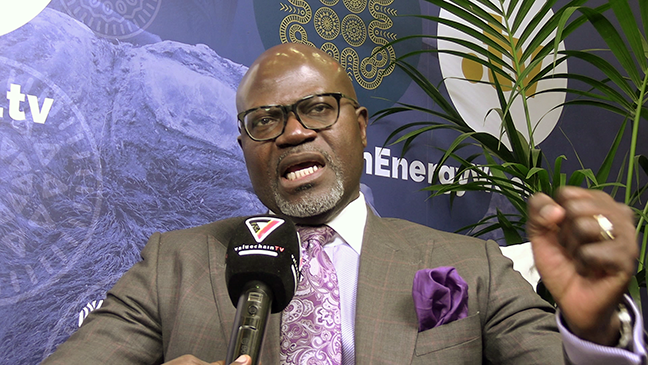
By William Emmanuel Ukpoju
In an exclusive interview with Valuechain, Anibor Kragha, Executive Secretary of the African Refiners and Distributors Association (ARDA), shared his expertise on the downstream oil industry, highlighting the importance of refining, investments, and sustainability in ensuring African energy security.
As the continent’s population is projected to grow significantly by 2050, with Nigeria, Ethiopia, and the Democratic Republic of Congo (DRC) ranking among the top ten countries globally, the energy demand is expected to increase. Kragha emphasised the need for Africa to refine its own oil, ensuring that the continent maximises the production and refining of African crude oil.
“We must add value to our crude oil on the continent by ensuring that we put in place the right refining, storage, and distribution assets to deliver it to various parts of the world,” Kragha stated. “This will not only create jobs and stimulate economic growth but also reduce our reliance on imported fuels.”
The Dangote refinery in Nigeria, which has recently come on stream, is a significant step towards achieving this goal. Kragha noted that the refinery is set to produce Africa-6, 10 ppm sulphur fuels, which will be a game-changer for the continent’s clean fuel agenda.
“ARDA is committed to promoting investments in the downstream oil industry, and the Dangote refinery is a shining example of what can be achieved with private sector investment,” Kragha said.
However, Kragha acknowledged that there are challenges facing public refining companies in Nigeria and the rest of Africa. He attributed these challenges to funding, citing the issues with debt to GDP durations of many governments on the continent.
“To ensure a robust industry, you need to attract investments,” he explained. “The private sector has access to funding, but the public sector faces challenges in this regard. This is why ARDA is working closely with governments, private sector companies, and international organisations to promote investments in the downstream oil industry.”
Kragha outlined five key steps to ensure robust investments in the industry. Firstly, a clear, supportive regulatory environment is essential to support investments over the long term. Secondly, adequate project preparation is necessary to clearly define the scope, cost, and schedule of projects. Thirdly, a clear understanding of the Environmental, Social, and Governance (ESG) imperative is crucial to attract funding in today’s world.
“ESG is no longer a nice-to-have, it’s a must-have,” Kragha emphasised. “Investors are increasingly looking for projects that not only generate returns but also contribute to sustainable development.”
Fourthly, Kragha stressed the importance of developing local content and capacity in the downstream oil industry. “We need to develop the skills and expertise of African professionals in the industry, so they can take ownership of projects and drive growth,” he said.
He further stressed the need for regional cooperation and integration in the downstream oil industry. “We need to work together as a continent to develop a robust and integrated energy market,” he said. “This will enable us to share best practices, reduce costs, and increase efficiency.”
Kragha also highlighted the importance of decarbonization in reducing the existing carbon footprint of refineries. He cited an example of ARDA’s work with Vitol and SR Refining in Cote d’Ivoire, which identified projects to reduce the carbon footprint of the refinery by 29%.
“Decarbonization is a critical component of our sustainability agenda,” Kragha said. “We need to work together to reduce our carbon footprint and promote cleaner fuels.”
Overall, Kragha emphasised the need for Africa to take control of its energy destiny. He stressed that the continent must work together to ensure energy security, promote investments, and prioritise sustainability.
“The time for Africa to take control of its energy destiny is now,” Kragha declared. “We must work together to ensure that we can deliver increased petroleum product demand while minimising imports as much as possible. This will require a coordinated effort from governments, private sector companies, and international organisations. But I am confident that together, we can achieve our goal of energy security and sustainability for Africa.”

